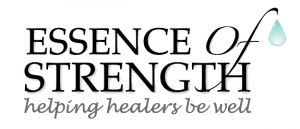Over the past five years I have lost several people in my life to unexpected deaths. The circumstances of their passings fall into three main categories that have impressed on me a lot about how to live every day. I hope that sharing what I’ve learned will motivate you to claim your power to live the best version of every day.
Young and apparently healthy.
When someone who seems totally well has a sudden death it is shocking to their loved ones. There are hopes and dreams that are dashed. Often, calls for an explanation go unanswered.
Deaths that occur under these circumstances remind me that tomorrow is not promised to anyone. It is up to me to live my life to the fullest every day because I have no idea when it will be my last.
Altruistic to a fault.
I have been blessed to have some of the kindest and most giving people as a part of my life. They are always there to lend their support, advice and time. Often the process of taking care of others supersedes doing the basic care for their own well-being.
There is always an intention to start exercising and eating better soon. They will start sleeping more once this next important project is completed. Unfortunately for some of them, the choice to put off addressing their own health issues in favor of caring for others contributed to early and unexpected deaths.
I am an altruist at heart. When I consider my behavior, I usually think about how it affects other people. However I’ve learned that it’s essential for me to value myself as much as, if not more than, I do the people in my life. I’m no good to anyone when I’m out of commission.
Suffering in silence.
Sadly, there is a final category of loss that I have experienced that includes folks who have taken their own lives. These were not people with whom I was especially close. In each situation, I don’t know the specific course of events that led them to choose to end their own lives.
These people were highly educated and very accomplished in their chosen vocations. Most of us would not look at them and recognize despair. However, they decided that there was no option in life that made it worth continuing.
This reinforced to me that no one is immune to depression. I can never assume that I know someone else’s life by observing it from afar. By the same token, I have to be comfortable looking at myself and asking for help when I need it.
Recently a friend and I discussed whether or not we would want to know when we are going to die. I decided a more meaningful query for me is, “How will your life change if you know you have 15 years to live?”
Pretty much everyone would be down for a drastic life transformation when they know life is only going to last another year. You’ll quit your job, spend more time with family and travel the world. On the other hand, fifteen years is usually too many days to pull off spending the rest of your life in quality time with friends, family and nature.
When I think about my friends and colleagues who passed away too soon I wonder what they may have done differently had they gotten the heads up with 15 years to go. That is just enough time to initiate a big life change and see it through.
How might their days have been more purposeful? How might their personal well-being have been more prioritized? What changes might have been implemented that led them closer to help instead of deeper into the hurt?
At this point, I can only speculate about the deceased. However, I can encourage those of us who are still here to reconsider our approaches to life. The best way I can think of to honor the lost lives is to make the most of the one I still have.
Did you enjoy this article? Sign up here to have blog updates and regular self care tips delivered directly to your inbox.
If you would like help developing the self care strategies that allow you to live the best version of every day, please click here to request an Essence of Strength sample coaching conversation.





